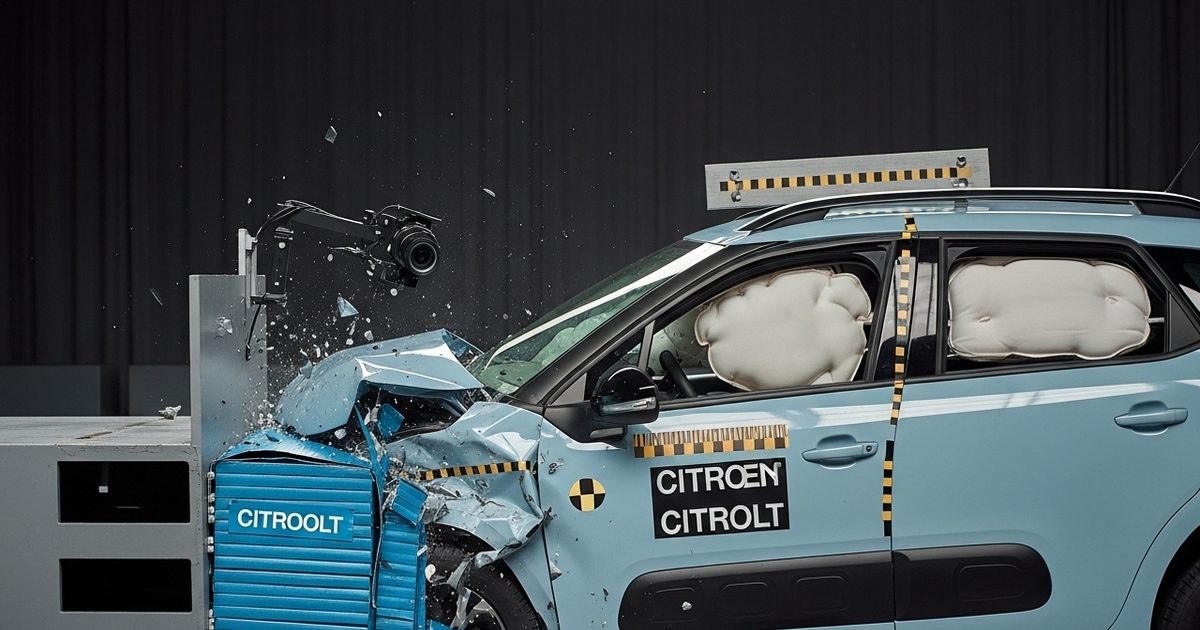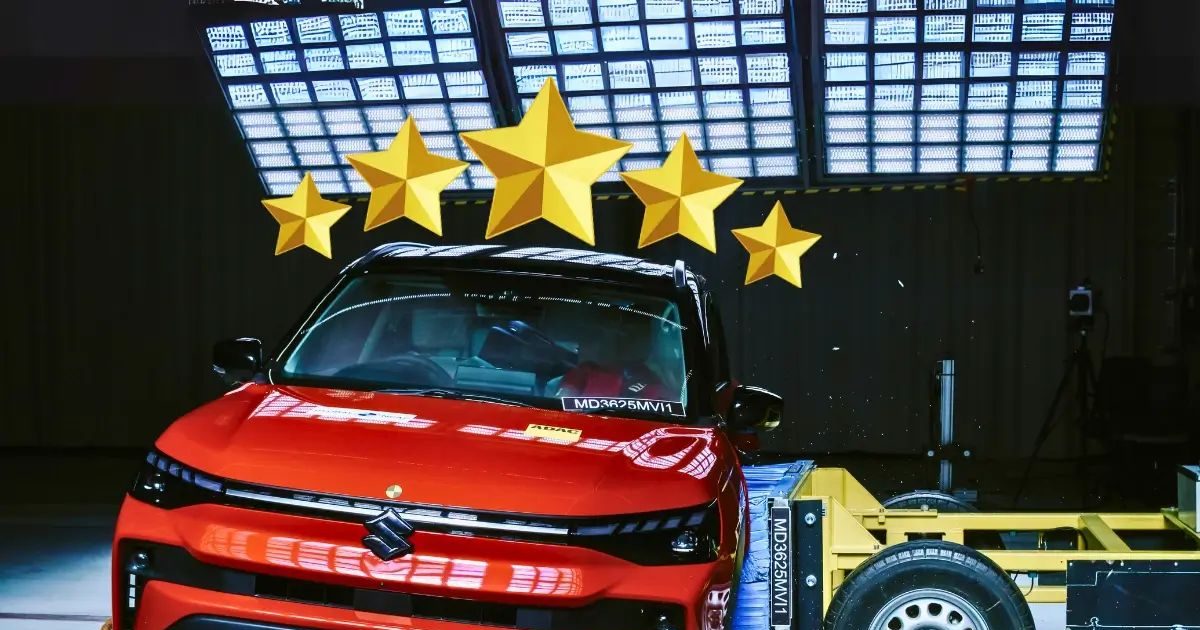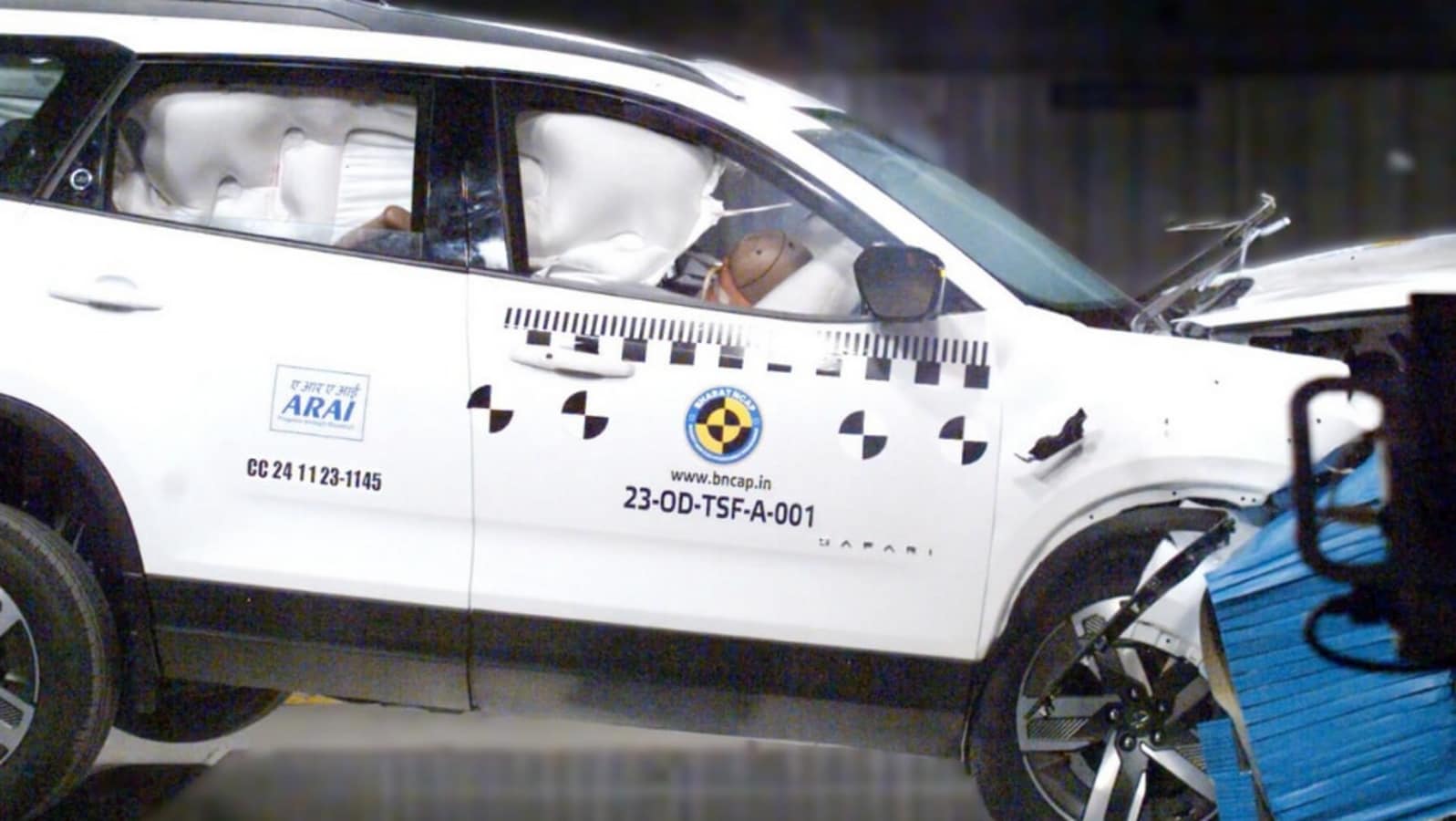Last Updated:
The Brazil-made Citroen Basalt got a 0-star safety rating in the Latin NCAP crash test, while the India-made Citroen Basalt got a 4-star safety rating in the Bharat NCAP.
Brazil In made Citroen basalt
Latin NCAP on behalf of Test were done Citroen basalt in 4 airbag Were engaged. base variants in other Safety system As electronic Stability control, Pedestrian Safety, seat belt reminder, isofix, belt pretensioner and belt Load limiter Are included. in india, basalt as standard 6 airbag Is presented with.
Citroen Basalt Latin NCAP , adult Safety
adult Safety Got 15.75 marks, which is 39%. Head and neck protection for the driver and passenger was found to be good. The driver's chest protection was marginal, while the passenger's chest protection was weak. This result is mainly a underperforming pretensioner Was due to. driver and front Passenger knee protection was found to be marginal. on knees facia There was a risk of a dangerous collision at the rear.
forward Loading not able to handle
However, both the passengers tibia The security was found to be adequate. footwell The area was found to be stable. But bodyshell Found unstable and further Loading Was not able to handle. side impact Test in head, stomach, chest and pelvis Good security was found. whiplash Test Adult neck protection was found to be marginal. side pole impact Test not done because basalt as standard side Head protection airbag Doesn't give.
child Safety
child Safety Total marks obtained in 28.59, which is 58%. 3 years old dummy and 1.5 years old dummy Both were found to have good security. child restraint system ,CRS) of the head exposure Successfully stopped. side impact Test in, 3 years old dummy His head hit the inside of the vehicle. 1.5 years old dummy No such problem was found with. Some? CRS installation Test Failed in. Citroën Basalt passenger airbag disconnection Does not come with. Latin NCAP noted that rear-facing child seats related to airbag warning its standards Does not fulfill.






